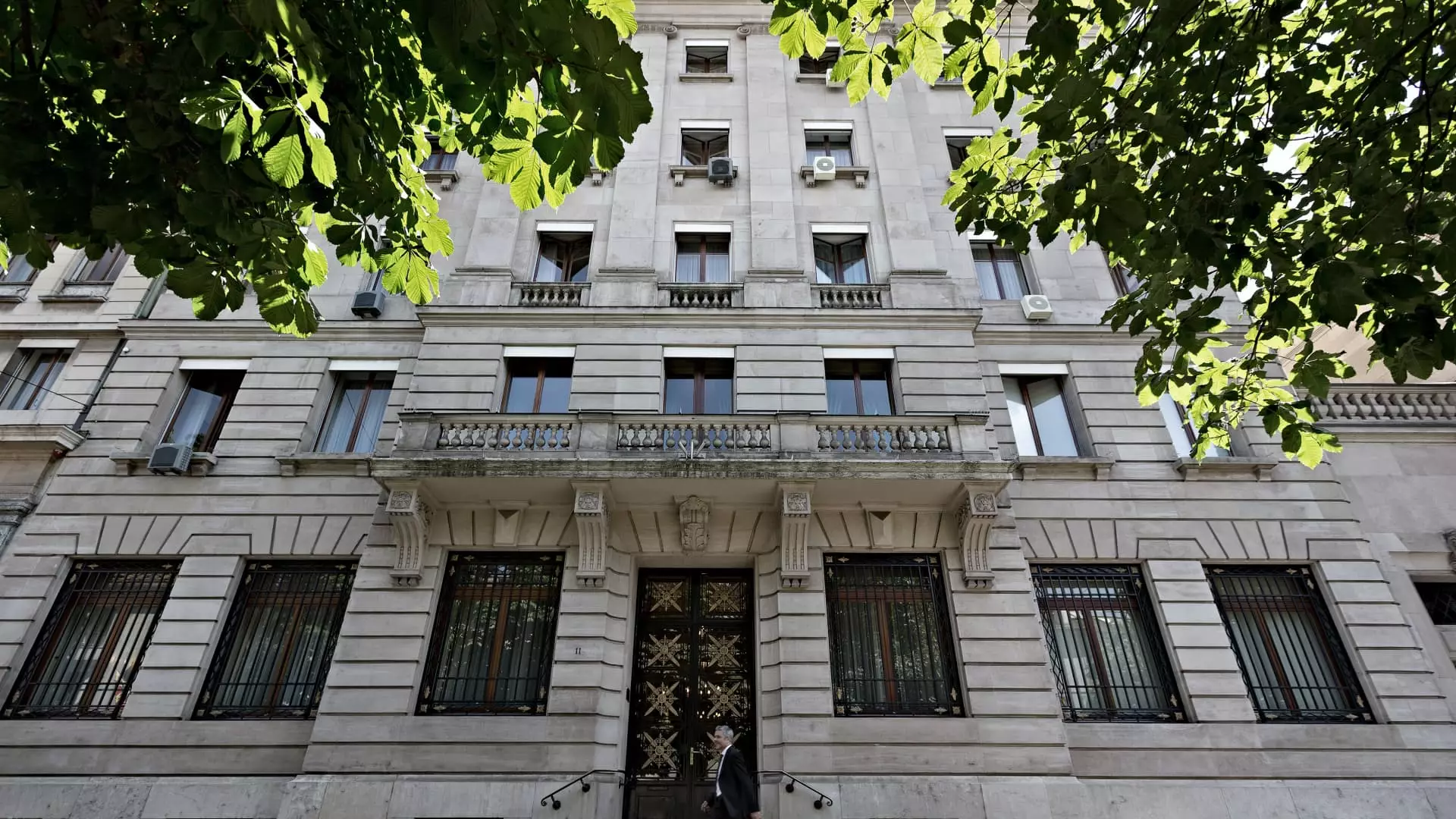Lombard Odier, one of the oldest private banks in Switzerland, has found itself at the center of a serious legal controversy following its indictment on charges of aggravated money laundering. This indictment, announced by the Office of the Attorney General of Switzerland (OAG), raises profound questions about the integrity of banking practices and the institutional accountability of long-standing financial organizations. The case highlights the ongoing challenges faced by regulators in combating financial crimes, particularly in a complex international landscape.
According to the OAG, the charges against Lombard Odier and a former employee involve allegations of concealing illicit funds linked to a criminal organization tied to Gulnara Karimova, the daughter of the late Uzbekistan President Islam Karimov. Karimova herself has been indicted on accusations of laundering money resulting from criminal activities between 2005 and 2012. Not only does this case shine a spotlight on the bank’s conduct but it also raises significant concerns about the oversight mechanisms in place to prevent money laundering within Swiss banking institutions.
The OAG’s statement elucidates that investigators believe a significant portion of laundered money might have passed through Lombard Odier’s accounts in Geneva. As a financial institution, Lombard Odier is expected to maintain rigorous compliance and anti-money laundering protocols; thus, the implications of these allegations are dire, potentially compromising the bank’s reputation and operational integrity.
Lombard Odier has publicly denied the allegations, characterizing them as unfounded and without merit. The bank emphasized that the charges stem from what it called “insufficient controls,” suggesting that while the institution acknowledges some procedural lapses, it fundamentally disputes the notion of involvement in criminal activity. The bank’s defense hinges partly on its claims of proactive engagement with Swiss authorities by reporting suspicions of illicit activities—a strategy that it appears hopes will mitigate the severity of the allegations.
In the face of legal proceedings, Lombard Odier plans to vigorously contest the indictment. This steadfast commitment from the bank indicates a belief in its own compliance practices, and it serves to reinforce its longstanding reputation in the private banking sector.
This situation serves as a powerful reminder of the ongoing issues surrounding financial deregulation and insufficient controls in financial institutions. The Swiss banking system, known for its discretion and stability, is not immune to the risks associated with money laundering and financial malpractice. This indictment could prompt a reevaluation of regulatory frameworks and compliance measures across the banking sector.
The implications of this case extend beyond Lombard Odier, potentially affecting public confidence in Switzerland’s private banking system as a whole. As the situation develops and more details emerge, stakeholders including clients, investors, and regulatory bodies will be watching closely. The results may herald a shift in how banks approach compliance and risk management in an era of increased scrutiny and expectations for transparency.
The indictment of Lombard Odier represents not just a potential crisis for the bank but also raises pressing questions about the nature of financial oversight and accountability in the Swiss banking sector at large.

